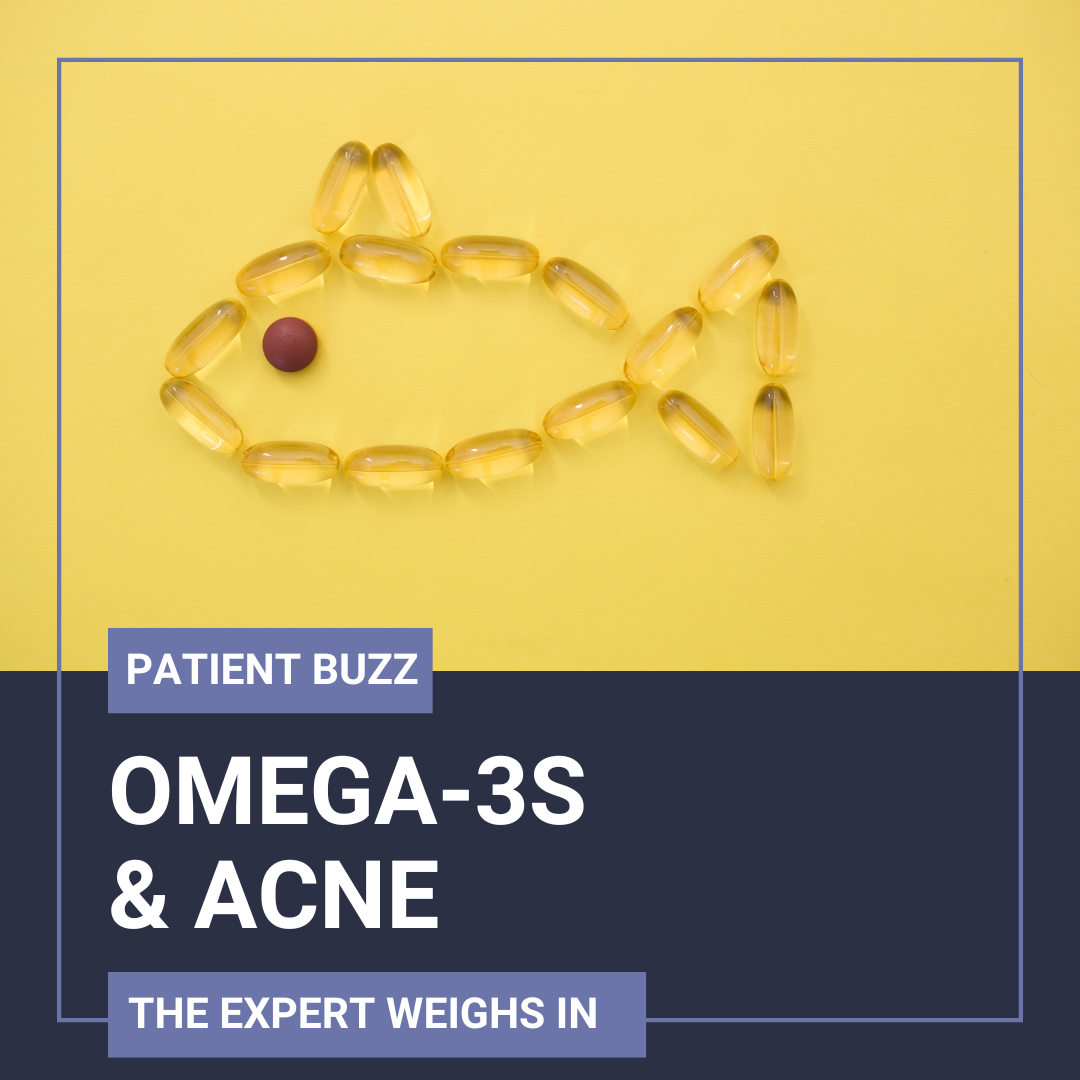WebMD recently posted an article, “Got a Zit, Eat Your Salmon,” which highlighted a study in the Journal of Cosmetic Dermatology on the role omega-3 fatty acids may play in preventing and treating acne. Should dermatologists address omega-3 fatty acid supplementation with their acne patients? What’s the latest in diet and acne?
For an expert’s take, I reached out to Vivian Shi, MD, director of the Clinical Trials Unit and Hidradenitis Suppurativa Clinic at the University of Washington, Seattle, Department of Dermatology.
What were your first thoughts when you heard about this study on omega-3 fatty acids and acne?
My initial thoughts were that this study represents an exciting advancement in the possible benefits of omega-3 fatty acids in patients with acne. While it has been established that omega-3 fatty acids have anti-inflammatory properties and, given the growing interest in the diet and holistic approaches in the treatment of conditions, this study definitely adds valuable insights for providers who should be prepared to discuss these topics with patients. However, it is important to contextualize this study within the broader literature, which includes both supportive and inconclusive studies on the influence of omega-3s on acne.
What does this study tell us about the role of omega-3 fatty acids and acne?
The study focuses on both the anti-inflammatory effects of omega-3 fatty acids as well as their ability to possibly modulate the pathogenesis of acne. The authors comment on proposed mechanisms of omega-3s that play a role in sebum overproduction, altered follicular keratinization, inflammation and colonization with the bacteria Cutibacterium Acnes. The authors go on to suggest that omega-3 supplementation could be a beneficial adjunctive treatment alongside traditional acne treatments.
What is left unknown? What are some cautions in interpreting this study?
While the study does offer some promising data, it’s important as with any study to recognize its limitations. For instance, the small sample size (60 patients) and lack of long term follow up are areas that could be improved upon in future investigations. Randomized, placebo-controlled trials – the gold standard of scientific research – are needed to gain a more robust understanding of the role of omega-3s in the treatment of acne. Additionally, as many variables as possible should be controlled to minimize confounders – whether it’s the patients’ diets, dosage of omega-3s, the ratio of females/males or other lifestyle factors that could influence outcomes. Doing so will help clarify whether the observed benefits are directly attributed to omega-3 supplementation or other factors.
What do other studies say about the role of omega-3 fatty acids and acne?
Other studies have shown that omega-3 fatty acids along with other nutraceuticals, like vitamin B5, vitamin D, green tea extract and probiotics, all have the potential to reduce acne lesions and improve overall skin health. However, the reality is that the evidence varies in quality, and while adverse events are rare, they should not be overlooked. Jung et al. conducted a randomized control trial that demonstrated a reduction in inflammatory markers and improvements in the histopathology of facial lesions after oral omega-3 supplementation. However, other studies, such as the one connected by Khayef et al., showed no differences after a 12-week intervention. The reality is the data is limited and conflicting, and more research is needed.
How do you counsel your patients about diet and acne? Do you address omega-3 fatty acids in your guidance?
I counsel my patients on maintaining a balanced diet that includes anti-inflammatory components, such as omega-3 rich foods like fish and flaxseeds. Given the current literature, it’s important to discuss the potential benefits of omega-3 supplementation, particularly in those patients that are interested in natural approaches to acne management. However, I do emphasize that, while nutraceuticals can complement, they may not always be able to replace standard acne treatments.
How has guidance about the role of diet and acne changed over time? What’s new or emerging in this area?
Over the years, the role of diet in acne management has evolved, and there has been a growing understanding of the impact of dietary factors, such as glycemic load, dairy and omega-3 fatty acids. Many of these play large roles in emerging research linking the gut microbiota to skin health, and it’s exciting to see how our understanding and management of acne will evolve with new research. Similar to the findings in this study, early stages of this field of research suggest that we might need to consider gut health as part of our therapeutic strategies in acne management.
What else do you think is important for dermatology clinicians to know about diet and acne?
Dermatology clinicians should be aware of the increasing interest in complementary medicine and nutraceuticals, and we should be prepared to discuss the evidence regarding their potential role in acne treatment. While omega-3 fatty acids show promise, it’s important for clinicians to maintain a balanced perspective and ensure that patients understand that these supplements could be a part of a comprehensive treatment plan that may still include conventional medications to optimize outcomes.
Did you enjoy this Patient Buzz expert commentary? You can find more here.

